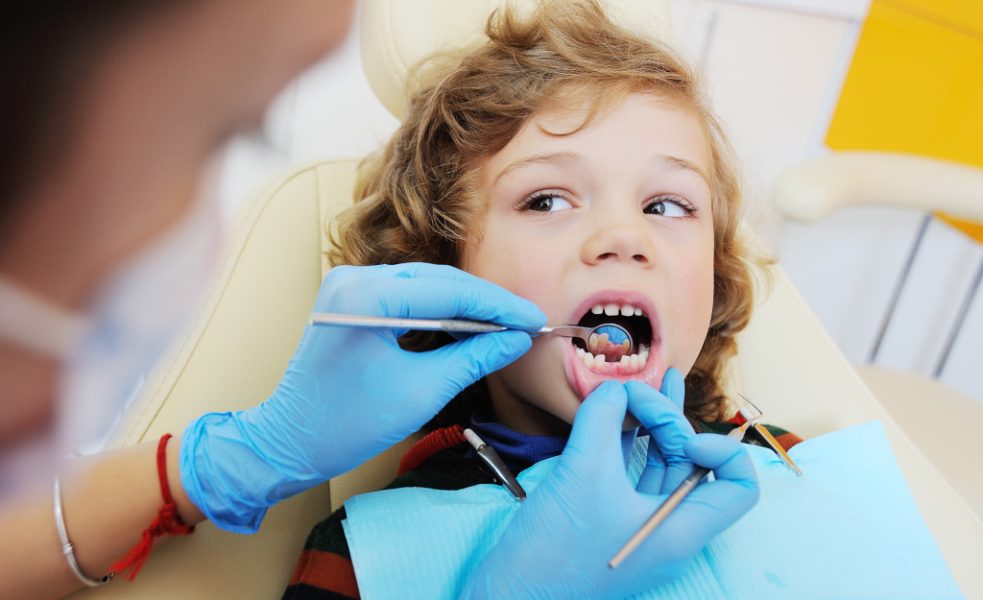- Include visits to the dentist in a child’s routine to help decrease anxiety related to dental appointments.
- Properly communicate with children by teaching them about the benefits of attending the dentist and explaining what will happen during their visit.
- Demonstrate positive behavior towards oral hygiene and dental appointments to ease any feelings of nervousness.
- During your child’s appointment, reassure them and stay calm and supportive while waiting in the waiting room.
Going to the dentist can be a stressful experience, especially for children. Even if your child is not scared of going to the dentist, they may still feel anxious or overwhelmed by all the sights and sounds of a dental office.
Parents must help their children find ways to cope with this anxiety to ensure that they have healthy teeth and gums for years to come. This article will discuss helpful tips for dealing with dental anxiety so that you can make your child’s next visit as comfortable as possible.
Make the Dentist Part of Your Regular Routine
Properly incorporating the dentist into a child’s routine can significantly impact their dental anxiety and oral health. Parents must select a reputable children’s dentist who makes children feel comfortable during their appointments. Parents can teach their children the importance of oral health by scheduling regular check-ups and cleanings and encouraging at-home dental hygiene habits.
Normalizing routine dental visits from a young age will make children feel less anxious and more comfortable at the dentist. Making the dentist a positive and regular aspect of a child’s life is essential to ensure their oral health for years.
Communicate with Your Child Properly
Communicating with your child properly is the key to helping them understand and cope with their dental anxiety. Here are some tips for how to do this:
Teach Your Child About the Benefits of Visiting the Dentist

Teaching your child the benefits of visiting the dentist can help alleviate any potentially overwhelming dental anxiety. This is important because a child’s early experiences with the dentist can set the tone for how they approach dental hygiene. Children can understand why regular dental visits are necessary by focusing on the positive outcomes of visiting the dentist, such as having healthy teeth and a bright smile.
Additionally, explaining to your child how a dentist can help identify and prevent dental problems before they become painful or costly can alleviate any fears they may have about their visit. It is ultimately up to you as the parent to guide your child through this process and ensure they understand the importance of dental health.
Explain What Will Happen During a Dental Visit
Explaining what will happen during a dental visit is crucial in alleviating a child’s dental anxiety and helping them feel comfortable during the appointment. Anxious children may feel powerless when faced with unfamiliar situations, especially if it involves physical discomfort or pain. Parents or caregivers can help children feel empowered and informed throughout the visit by preparing them for what they can expect.
This can be done in simple terms, such as explaining the purpose of each tool and procedure, and reassuring them that the dentist will be gentle and considerate of their needs. When a child feels like they know what to expect, they are more likely to cooperate with the dentist and tolerate discomfort. Overall, explaining the process can make a profound difference in a child’s dental experience and pave the way for a lifetime of good oral hygiene.
Model Good Attitudes Toward Oral Care
Modeling good attitudes toward oral care and visits to the dentist is crucial for parents who want to help their children feel comfortable at the dentist. Dental anxiety is a condition that affects many people, especially children.
Anxiety can cause great discomfort and fear, resulting in missed dental appointments and oral health issues. Therefore, parents must teach their children the importance of oral care and demonstrate positive attitudes toward dental visits. By doing so, parents can help alleviate their child’s dental anxiety and promote healthy oral habits that will last a lifetime.
Reassure Your Child During Their Appointment

Reassuring your child during their appointment is crucial to alleviate dental anxiety. Children may become apprehensive and overwhelmed during their visit to the dentist. Proper reassurance can be a powerful tool to make them feel comfortable.
It is important to listen to your child’s concerns throughout the appointment and calm their fears with empathy and patience. Acknowledge their worries and make sure to explain each step of the procedure to them in an age-appropriate manner. By addressing their fears, a parent can help their child associate their dental appointment with a positive experience.
Stay Calm and Supportive
When a child experiences dental anxiety, it can be a daunting experience for both the child and their accompanying adult. The waiting room and exam room can be particularly stressful environments for anyone new to dentistry, especially children unsure of what to expect.
As a parent or caregiver, ensuring your child feels comfortable and supported throughout their dental visit is important. This means staying calm and focused, despite any concerns or apprehensions. Maintaining a positive and reassuring attitude can establish a foundation of trust that will help your child feel more at ease during their time at the dentist.
These are just a few tips to help your child cope with dental anxiety and make their next visit as comfortable as possible. It is common for children to feel anxious when visiting the dentist, but there are strategies to assist them during this experience.



